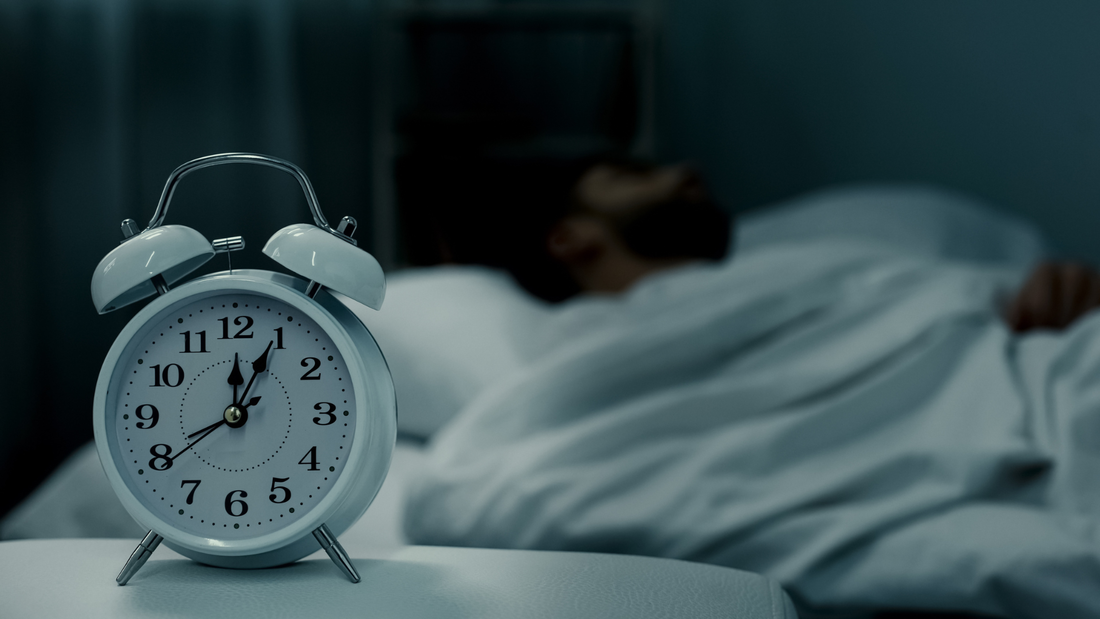|
Recovery is one of the most overlooked aspects of fitness. Everyone wants to know how to train or what to eat to optimize their performance, but they don’t always think about how they can recover to make the most of their training.
Simply put, recovery refers to how your body heals and adapts to the stresses of physical activity. Your body naturally begins the recovery process after you exercise or train, but there are things you can do to speed up this process and improve the training that follows. When it comes to recovering from exercise, there are three main pillars that serve as the foundation for recovery: sleep, nutrition, and hydration. Pillar I: Sleep Sleep is probably the most important factor in exercise recovery. When you sleep, your body creates 95 percent of the hormones present in your body. These hormones help to aid in muscle repair and growth (testosterone), ligament and joint repair (growth hormone), and body fat storage (insulin). By getting the appropriate amount of sleep — 7 to 9 hours per night — you are allowing your body to reset its natural circadian rhythm and repair itself. Sleep has also been shown to increase the rate at which your nervous system learns new skills. One study found that you can increase your ability to learn a new skill by 10 to 30 percent by getting 7 to 9 hours of sleep per night. Although you are not conscious, your brain is still communicating that skill to your body. You can literally improve your running technique or lifting technique while you sleep! Pillar II: Nutrition Nutrition is typically the most applied method of recovery, but it can also be applied incorrectly. Your body needs fuel to perform, period. If you are not giving your body the right fuel, you are asking for problems. Your body also uses different fuels for different reasons. When you strength train, your body tears down the muscle fibers. Protein is what your body uses to help repair, build, and protect those muscle fibers. Protein also protects your muscle fibers from being used for fuel. If you are under-consuming protein, you are signaling to your body that it can use your stored muscle for energy (something nobody should want). Dietary fat also has an important role in recovery. Dietary fat is the building block for hormones in your body. If you don’t consume enough fat, you can rob your body of the ability to create testosterone, growth hormone, and other hormones that help your body function correctly. Carbohydrates are the last piece of the puzzle. Carbohydrates are your body’s preferred source of fuel for intense exercise, such as strength training, sprinting, or high-intensity athletics. Carbohydrates give your muscles the fuel they need to not only perform their best, but to also protect your body from using your muscle as fuel. Pillar III: Hydration Hydration is the last component. Roughly 60 percent of the human body is water, and it is vital for all chemical processes in the body. If you do not have enough water your body will not be able to function properly. Everything, from electrical messages sent by your nervous system to a cell’s metabolism, is affected. General guidelines for water intake vary based on a couple of factors, though eight, 8-ounce glasses of water per day is a good baseline and easy to remember. Remember: Getting in better shape isn’t about what training you are capable of, but what training you are able to recover from. If you want to train hard, you’re going to have to recover even harder! Author: Chris Ball, CSCS Sources “Back to Recovery Basics: The Big Three.” EliteFTS. https://www.elitefts.com/education/back-to-recovery-basics-the-big-three/ Stickgold, Robert and Matthew P. Walker. “Sleep-Dependent Memory Consolidation and Reconsolidation.” Sleep Med. 2007 Jun; 8(4): 331–343. https://www.ncbi.nlm.nih.gov/pmc/articles/PMC2680680/ “Water: How Much Should You Drink Every Day.” Mayo Clinic. https://www.mayoclinic.org/healthy-lifestyle/nutrition-and-healthy-eating/in-depth/water/art-20044256. “How Much Sleep Do Adults Really Need?” National Sleep Foundation. https://www.sleep.org/articles/how-much-sleep-adults/ Walker, MP. et al. It's Practice, with Sleep, that Makes Perfect: Implications of Sleep-Dependent Learning and Plasticity for Skill Performance. Clinics in Sports Medicine, Volume 24, Issue 2, 301-317.
0 Comments
Although most people know they should get between 7 and 8 hours of sleep per night, 40 percent of Americans are sleep deprived. The average American gets less than the recommended 7 hours of sleep per night during the week. In a 24-hour, rapid-paced society where sleep often gets put on the back burner, it can be challenging to prioritize getting enough rest. So why do you need a good night’s sleep?
For Your Brain You may think your brain is resting while you are asleep, but it’s working hard to recover from your day and prepare you for the day ahead. Sleep, both before and after learning, is critical for memory consolidation and storage in long-term memory. Being well-rested provides advantages in learning and memory, as well as creativity. However, lack of sleep can dull and impair the brain’s ability to create new fact-based memories by 40 percent. For Your Body Just like your brain, your body works hard to recover while you are sleepーreleasing hormones that rebuild muscles and joints. The more you sleep, the more able your body is to repair itself. Sleep also gives your heart a break from all of its hard work throughout the day by reducing heart rate and blood pressure. On the other hand, short or interrupted sleep weakens the immune system and can increase the risk of heart disease, infections, and even cancer. For Your Belly While sleep affects many systems of the body, it also has a significant impact on our waistlines. This is because while we sleep, our bodies restore the appropriate levels of the hormones ghrelin (the hormone that makes you feel hungry) and leptin (the hormone that makes you feel full). Without a good night’s sleep, levels of ghrelin increase while leptin decreases, causing you to feel hungrier than you would be with a total of 7 hours. But not getting enough sleep can also affect behaviors contributing to weight gain. A National Institutes of Health study found that when study participants’ sleep was restricted to four hours per night, they gained almost two pounds within five days without even realizing it. Not only does limited sleep increase appetite for fatty foods by 33 percent, but little sleepers consume 500 more calories per day than those who get sufficient sleep. In addition to the effect sleep deprivation has on metabolism, short sleepers tend to eat during periods when they would typically be sleeping, which can also lead to weight gain. So if you are struggling to lose those last few pounds, the secret may be catching more Z’s. For Your Emotional Well-Being Do you ever feel irritable or cranky after a poor night’s sleep? That’s because sleep can influence your mood. The amygdala and the frontal cortex are two parts of the brain that are vital to regulating and controlling emotions. When you get a good night’s sleep, your frontal lobe can settle down the vigorous activity in your brain. Conversely, both areas of the brain are impacted when we don’t get enough sleep, causing us to be less equipped to regulate our emotions. For Your Safety You may think you can function at your best without a whole night’s rest, but the lack of sleep may affect you without you noticing. Lack of sleep can lead to microsleepーbrief, uncontrollable moments of sleep that occur when you are generally awake. You may think you can operate at your fully-rested level because you’re probably unaware of microsleep. It can happen while listening to a lecture, sitting in a meeting, or even while driving, and studies show that drowsy driving is just as, if not more dangerous than, drunk driving. Decision-making, reaction time, situational awareness, communication, and memory are all impaired with less sleep and can lead to accidents. In addition, researchers at Harvard Medical School found that poor sleep habits in medical residents led to increased medical errors. It can be challenging to go to sleep on time and prioritize getting a good night’s rest, but there are many benefits to your overall health and well-beingーall the, more reason to hit the hay and count some sheep! References: “Sleepless in America.” National Geographic, National Institutes of Health. https://www.youtube.com/watch?v=1qlxKFEE7Ec “Sleep Health.” National Sleep Foundation. https://www.sleep.org/ “Sleep Deprivation and Deficiency.” National Heart, Lung, and Blood Institute. https://www.nhlbi.nih.gov/health-topics/sleep-deprivation-and-deficiency “The Benefits of Slumber: Why You Need a Good Night’s Sleep.” National Institutes of Health. https://newsinhealth.nih.gov/2013/04/benefits-slumber What is a health coach?
A health coach motivates you to bring overall lifestyle changes to improve your health and well-being. They help you discover the "why" behind your desired health goals and empower you to become an expert on your body, mind, and circumstances. Health coaches will use their general health and wellness knowledge to guide you through health concerns by identifying challenges preventing change. Then, through support and accountability, they will help you overcome those barriers. Why is health coaching necessary in modern health practices? Whether you've chosen to better your health due to a health crisis or just want to make a lifestyle change, it isn't easy to feel productive and motivated when unsure where to start. Health coaches can provide support and guidance during transitioning from an unhealthy lifestyle to a health-centered one. They are partners and "change agents" who help you set and achieve health goals and build new habits. In the realm of health and fitness, we have become reliant on meal plans, diets, and philosophies dictated by "others" to solve our "self" (doctors, personal trainers, nutritionists, social media influencers, etc.). However, prescribed plans typically fall apart because they don't account for the reality of your life: who you are, what you care about, and how you spend your time. They don't fix the underlying behavioral patterns that may be leading to an unhealthy lifestyle. The common functional medicine approach tends to fail because it addresses the symptoms instead of finding the root of the problem. Prescriptions should not be the first thing we look at; they should be lifestyle first. If you seek results, you need to establish different behavioral patterns by building plans specifically for you - and created by you - with your circumstances and priorities front and center. That's where a trained, certified health coach comes in. Health coaches use a client-centered approach to collaborating with people. They function as partners and facilitators, supporting their clients in taking action, creating plans, and achieving goals based on the client's ideas, interests, and experiences. Health coaches can be critical interpreters and patient advocates for people dealing with a medical system that is short on time to listen to patient's concerns and explain how to implement treatment plans. You can think of health coaching as sitting at the intersection of health information and behavioral change. Health coaches have a working knowledge of diet, lifestyle, and nutrition. They understand how these contributors to health affect the body, which helps them understand and empathize with clients' health challenges. Coaches also have the tools and skills to help clients build new habits and make lasting changes. This makes them unique in the healthcare industry—they are not just a source of information but a catalyst for transformation. |
CategoriesAuthorsFX Well Elite Personal Trainers, Dietitians, and Wellness Industry Professionals Archives
September 2022
|
Services |
About |
|


